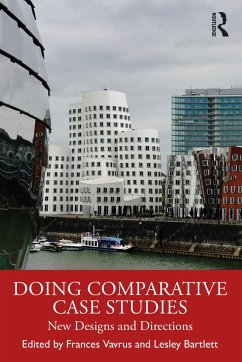
Researching Elites and Power
Theory, Methods, Analyses
Herausgegeben: Denord, Francois; Palme, Mikael; Réau, Bertrand
Versandkostenfrei!
Versandfertig in 6-10 Tagen
31,99 €
inkl. MwSt.

PAYBACK Punkte
16 °P sammeln!
This open access book describes how elite studies theoretically and methodologically construct their object, i.e. how particular conceptualizations of elites are turned into research practice using different methods for collecting, dealing with and analyzing empirical data. The first of four sections focuses on what Mills named the power elite and includes Bourdieu's field of power. The second section addresses studies of the domain of economic power, whereas the third section centers on research on elite education. The fourth and last section highlights research on symbolic power, either with...
This open access book describes how elite studies theoretically and methodologically construct their object, i.e. how particular conceptualizations of elites are turned into research practice using different methods for collecting, dealing with and analyzing empirical data. The first of four sections focuses on what Mills named the power elite and includes Bourdieu's field of power. The second section addresses studies of the domain of economic power, whereas the third section centers on research on elite education. The fourth and last section highlights research on symbolic power, either within social fields or as a dimension of social structure at large, areas where recognition is essential. All sections comprise empirical case studies of elites and power, whereby each of which makes explicit the various methodological choices made in the research process. Through focusing on methodological approaches for the study of elites and power and on how such approaches relate to each other as well as to the theoretical perspectives that underpin them, this book will be a valuable source for social scientists.














